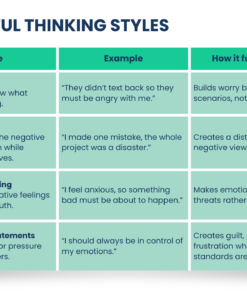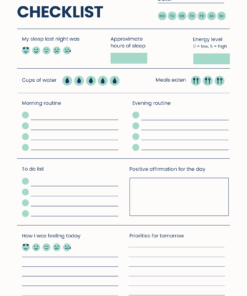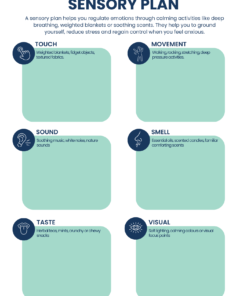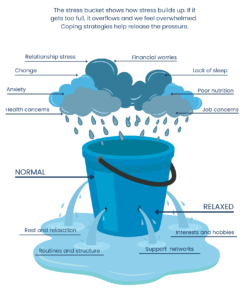Change, Occupational Therapy
Occupational therapy: small changes, big impact on mental health and wellbeing
Beyond physical recovery how occupational therapy supports your mental health and wellbeing
When people think of occupational therapy they often associate it with physical rehabilitation helping someone regain movement after an injury or illness. But occupational therapy is so much more especially when it comes to mental health and wellbeing. Occupational therapy focuses on the activities that give life meaning helping people make small sustainable changes to improve their daily routines manage stress and build confidence. It’s about empowering you to live a full and meaningful life regardless of the challenges you might be facing.
What is occupational therapy really?
At its core occupational therapy helps individuals engage in the activities or ‘occupations’ that are important to them. Think of these occupations as the threads that weave together the tapestry of your daily life. These activities could be anything from the seemingly simple act of cooking a meal to the more complex tasks of getting dressed working socialising or engaging in a cherished hobby. When mental health challenges like anxiety depression or even just feeling overwhelmed make these everyday tasks feel like climbing a mountain an occupational therapist works alongside individuals to find practical strategies that make life more manageable and fulfilling.
They act as a guide helping you navigate the obstacles and rediscover the joy in your daily routines. Imagine your life is a car journey and mental health difficulties are like a flat tyre. A mechanic might fix the tyre but an occupational therapist will help you learn how to change the tyre yourself equip you with a map for future journeys and even help you enjoy the scenery along the way.
How can occupational therapy be a powerful tool for mental health?
Mental health challenges can often disrupt the very fabric of our lives throwing our routines motivation and energy levels into disarray. Occupational therapists take a holistic approach looking at how a person’s environment habits and daily activities impact their mental wellbeing. They understand that your mental health isn’t just about your thoughts and feelings it’s deeply connected to what you do every day. Here’s how occupational therapy can offer invaluable support:
Think of your daily routine as the backbone of your day. When it’s strong and supportive it provides structure and predictability which can be incredibly beneficial for mental health. Occupational therapists can help you establish and maintain healthy routines that promote wellbeing.
This might involve setting realistic sleep schedules incorporating regular exercise or planning time for enjoyable activities. It’s like planting seeds in a garden; with consistent care and attention these small actions can blossom into significant improvements in your overall wellbeing.
For someone struggling with depression this might involve collaboratively creating a simple morning routine that includes getting out of bed having a shower and eating breakfast breaking down an overwhelming task into manageable steps.
In today’s fast-paced world stress and overwhelm can feel like constant companions. Occupational therapists can equip you with practical strategies to manage these feelings effectively.
This might include teaching mindfulness techniques time management skills or sensory strategies to help you regulate your emotions. Imagine you’re navigating a stormy sea; an occupational therapist can help you learn how to read the waves adjust your sails and find calmer waters.
For example someone experiencing anxiety might learn grounding techniques to help them stay present in moments of panic or develop strategies for breaking down large tasks into smaller more manageable chunks reducing feelings of overwhelm.
Engaging in activities that you find meaningful and enjoyable can significantly boost your self-esteem and confidence. Occupational therapists can help you identify activities that align with your interests and values and support you in re-engaging with them or exploring new ones. It’s like learning to ride a bike; with practice and encouragement you gradually build confidence and a sense of accomplishment.
For someone with social anxiety an occupational therapist might work with them to gradually increase their participation in social activities starting with small achievable steps like having a conversation with a shop assistant or joining a small online group.
Taking care of our basic needs is fundamental to our mental and physical health. Occupational therapists can help you develop or improve essential self-care and daily living skills such as personal hygiene meal preparation and managing finances. Think of these skills as the building blocks of independent living; when they are strong you feel more capable and in control.
For someone experiencing severe depression even basic self-care tasks can feel insurmountable. An occupational therapist can break these tasks down into smaller steps provide adaptive equipment if needed and offer encouragement and support to help them regain independence.
Social connection is vital for our mental wellbeing. Occupational therapists can help you identify opportunities for social interaction and develop strategies to build and maintain meaningful relationships. This might involve exploring community groups volunteering opportunities or using technology to connect with others. Imagine you’re part of a jigsaw puzzle; each social connection is a piece that helps you feel more complete and connected to the bigger picture.
For someone experiencing loneliness or social isolation an occupational therapist might help them identify local interest groups or support them in developing communication skills to feel more comfortable in social situations.
The true beauty of occupational therapy lies in its personalised approach. There’s no one-size-fits-all solution; every plan is carefully tailored to the individual’s unique needs goals and circumstances. By focusing on small achievable steps occupational therapy helps people regain a sense of control and purpose in their lives. It’s not about making drastic overnight changes but rather about fostering sustainable habits that lead to lasting positive outcomes. Think of it like tending to a garden; consistent small acts of watering weeding and nurturing will eventually lead to a thriving and beautiful space.
The occupational therapy approach a holistic view
Occupational therapists in the UK adopt a truly holistic perspective. They understand that your mental health is influenced by a complex interplay of factors including your physical health your social environment your personal values and your daily routines. They will work with you to explore all these aspects of your life to develop a comprehensive and effective support plan. This might involve collaborating with other healthcare professionals such as GPs psychologists or social workers to ensure you receive the best possible care.
Who can benefit from cccupational therapy for mental health?
Occupational therapy for mental health isn’t just for people with diagnosed mental health conditions. It can benefit anyone who is experiencing challenges that are impacting their ability to engage in daily life and feel a sense of wellbeing. This could include individuals experiencing stress burnout anxiety low mood difficulties with sleep or social isolation. It can also be incredibly beneficial for people recovering from trauma or adjusting to significant life changes. Occupational therapy can provide support for people of all ages from children and adolescents to adults and older adults.
Ready to take the next step?
If you or someone you know is struggling with mental health challenges and everyday tasks feel overwhelming consider the transformative power of occupational therapy. Small changes in your daily routines and activities guided by a skilled occupational therapist can make a profound difference in your overall wellbeing. Occupational therapy isn’t just about coping it’s about thriving one step at a time.
Take control of your mental wellbeing today!
If you’re in the UK and would like to explore how occupational therapy can support your mental health we encourage you to reach out to your GP to access local NHS services that can support you or if you’re interested in private occupational therapy practices get in touch. Don’t wait to start your journey towards a more fulfilling and balanced life.
Remember even the smallest step forward is a step in the right direction.
Step into change: your toolkit for everyday wellbeing
Start your journey today with our self-help guides, resources and practical, supportive tools designed to help you take that first step towards positive, lasting change. Whether you’re building a routine, managing emotions or finding balance, there’s something here to support you.





